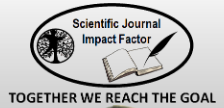Pagan Ecofeminism: A Study of Alice Munro’s “Princess Ida”
DOI:
https://doi.org/10.59136/lv.2023.1.1.108Keywords:
pagan ecofeminism, Egyptian Isis, monotheism, polytheism, primordial.Abstract
This paper attempts to explore Alice Munro’s short story, “Princess Ida” from an ecofeminist lens. “Princess Ida” is one of Munro’s stories from 1971 short story collection, Lives of Girls and Women. The paper uncovers the elements of paganism, one of the strands of ecofeminism, present in the story. It offers pagan ecofeminist study of the text by opposing monotheistic religion and embracing any religion that worships the earth, nature, or fertility deity, such as the various forms of goddess worship or matriarchal religion. It establishes a connection between earth-worship and the Gaia hypothesis. The present paper attempts to underline that Earth as a living organism, like any other living thing, invariably tries to exert constant or stable conditions for itself (homeostasis). And these exit groups and beliefs that come under the category of earth religion, such as paganism, a polytheistic, naturecentered religion; animism, a doctrine that all natural objects and the universe itself, have souls. Munro associates many female characters with primordial vitality, renders them with pagan and mythic qualities, constructs a narrative of female goddess figures, signifying pantheistic religions of the primitive world. The paper exhibits how Munro’s character withdraws herself from the masculine Christian mythology and is drawn towards pagan religious context of Astarte and Isis where both woman’s and earth’s life-giving powers are associated and respected.
Downloads
Downloads
Published
Issue
Section
License

This work is licensed under a Creative Commons Attribution-NonCommercial 4.0 International License.




